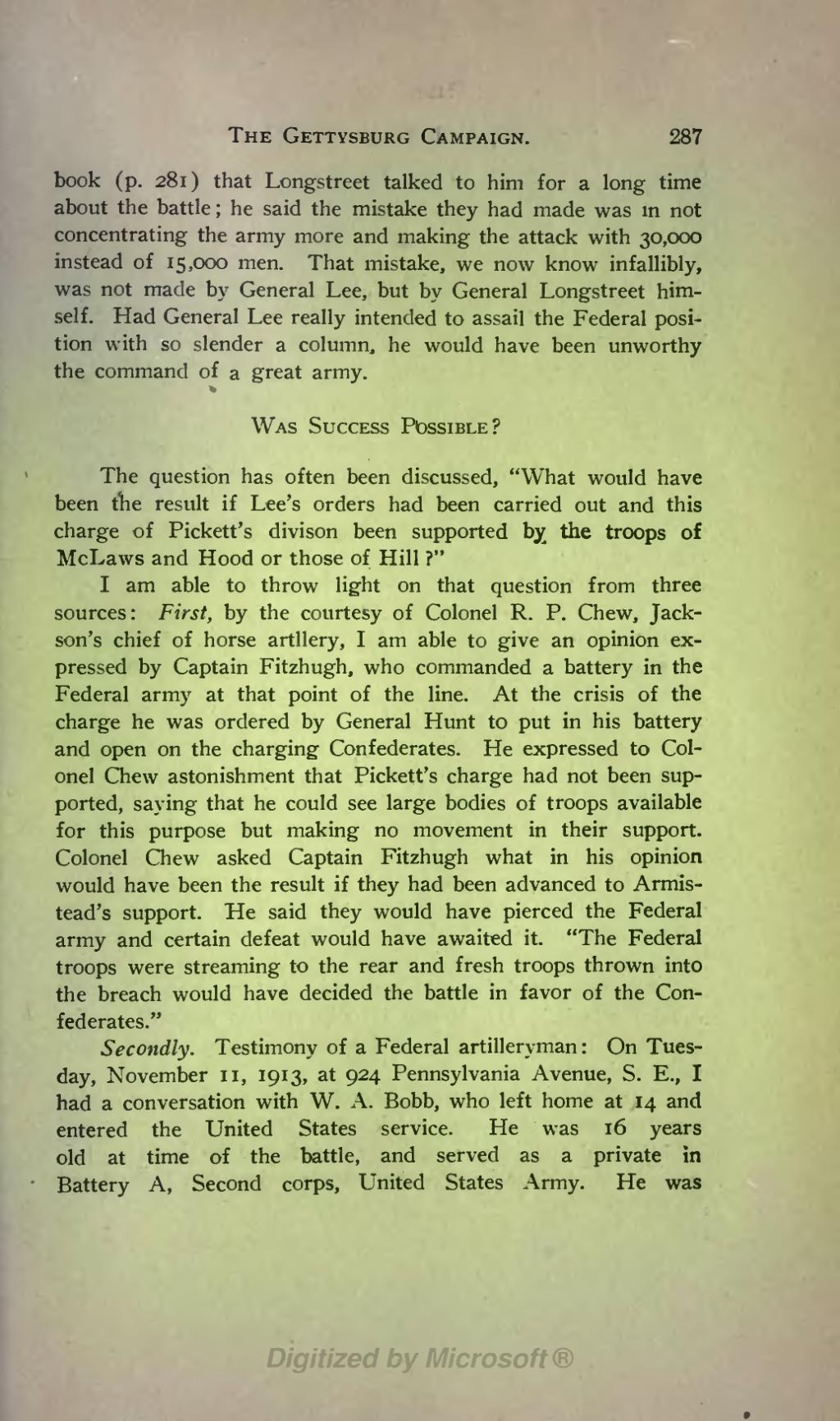book (p. 281) that Longstreet talked to him for a long time about the battle; he said the mistake they had made was in not concentrating the army more and making the attack with 30,000 instead of 15,000 men. That mistake, we now know infallibly, was not made by General Lee, but by General Longstreet himself. Had General Lee really intended to assail the Federal position with so slender a column, he would have been unworthy the command of a great army.
Was Success Possible?
The question has often been discussed, "What would have been the result if Lee's orders had been carried out and this charge of Pickett's divison been supported by the troops of McLaws and Hood or those of Hill?"
I am able to throw light on that question from three sources: First, by the courtesy of Colonel R. P. Chew, Jackson's chief of horse artillery, I am able to give an opinion expressed by Captain Fitzhugh, who commanded a battery in the Federal army at that point of the line. At the crisis of the charge he was ordered by General Hunt to put in his battery and open on the charging Confederates. He expressed to Colonel Chew astonishment that Pickett's charge had not been supported, saying that he could see large bodies of troops available for this purpose but making no movement in their support. Colonel Chew asked Captain Fitzhugh what in his opinion would have been the result if they had been advanced to Armistead's support. He said they would have pierced the Federal army and certain defeat would have awaited it. "The Federal troops were streaming to the rear and fresh troops thrown into the breach would have decided the battle in favor of the Confederates."
Secondly. Testimony of a Federal artilleryman: On Tuesday, November 11, 1913, at 924 Pennsylvania Avenue, S. E., I had a conversation with W. A. Bobb, who left home at 14 and entered the United States service. He was 16 years old at time of the battle, and served as a private in Battery A, Second corps, United States Army. He was
